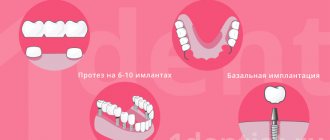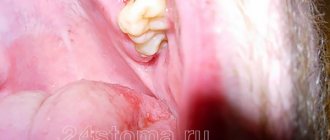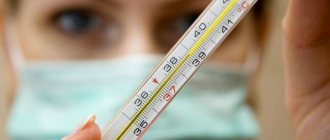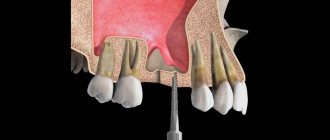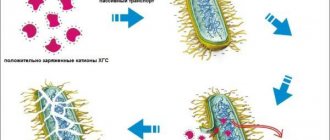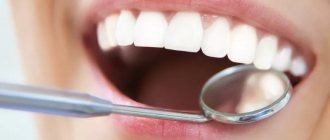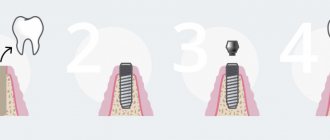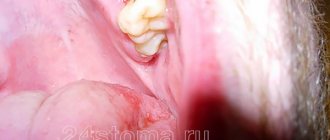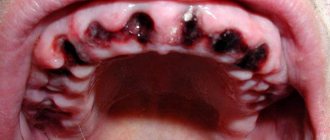From this article you will learn:
- Why you can’t eat after tooth extraction
- Is it possible to smoke after tooth extraction?
- When and what can you eat after tooth extraction?
- Alcohol before surgery - possible consequences
- Possible complications if you ignore the ban
- Alcohol after dental treatment
- What is allowed to drink after tooth extraction?
- How long after can you drink alcohol?
- Alcohol after dental implantation
- Other complications in which drinking alcohol is prohibited
Tooth extraction, according to dentists, is an operation of despair. Long gone are the days when it was easier to remove a molar than to treat it. Now doctors are fighting to the last to save all the teeth. They even try not to remove wisdom teeth without compelling evidence.
Tooth extraction is a physically and mentally difficult operation for the patient. Therefore, many people try to relieve stress with alcohol. Often this decision leads to serious complications.
Why you can’t eat after tooth extraction
Tooth extraction is a full-fledged surgical operation. It is performed under local anesthesia, in some cases general anesthesia is indicated. Sometimes suturing of the gum is required. And for patients with blood diseases, hospitalization in the department of maxillofacial surgery is indicated for tooth extraction.
After a tooth is removed, a blood clot forms in its socket. Its task is to close the jaw bones, prevent the entry of foreign bodies and pathogenic flora, prevent the development of complications, promote tissue formation and gum healing.
It is forbidden to eat food for 2–3 hours after the procedure. And until the tissues are completely healed, chew on the side of the jaw where the wound is located.
Reasons for the ban:
- pressure on the injured gum will increase pain and cause bleeding;
- food irritates the gums and contributes to the development of swelling;
- bacterial and fungal flora enters with food, which increases the risk of complications;
- the rate of tissue healing decreases;
- food damages the fibrin clot, dislodges it and exposes the internal bones of the jaw.
Surgery is stressful and, as a rule, you don’t want to eat after molar extraction. But even if you are tormented by hunger pangs, you should follow the dentist’s recommendations and wait 2 hours.
Is it possible to smoke
Smoking is prohibited for 2 hours after extraction of a molar, incisor or molar. Even if the bleeding has completely stopped. If the ichor is still secreted, then the cigarette is prohibited until it stops completely.
If stitches are required, then you will have to forget about the cigarette for 7-10 days.
Reasons for the ban:
1. Tobacco smoke can cause burns to the mucous membrane, tooth socket, and jaw tissue.
2. The products of tobacco combustion dry mucous membranes and other tissues. This helps break down the fibrin clot.
3. Nicotine reduces the rate of resorption of suture material, increasing wound healing time.
Neglecting the recommendations is fraught with the development of complications and prolonged tissue healing.
How does alcohol affect antibiotic therapy?
After strip interventions, doctors often prescribe antibiotic therapy to patients. Its goal is to prevent inflammatory and infectious processes in tissues damaged by the surgeon. Mixing pharmaceuticals and high-alcohol drinks can cause headaches, impotence, nausea, and lead to processes incompatible with life.
Alcohol neutralizes the effect of antibiotics, increasing the load on the heart and liver
As a result of the action of antibiotics, toxic substances accumulate in the individual’s body (from the interaction of the antimicrobial drug with the microbe itself and its death, as well as from the breakdown of the antibiotic into metabolites). All these substances are neutralized by the liver and excreted by the kidneys. Alcohol greatly increases the metabolic load on the cleansing organs.
Besides:
- Drugs belonging to the cephalosporin series and often used in the treatment of inflammatory processes of the genitourinary system and respiratory tract reduce their effectiveness when exposed to ethanol.
- With the simultaneous use of Zinnata and alcohol-containing products, death is possible.
- When combining Palin and intoxicating drinks, the individual cannot obtain the required effect of the medication. The medicinal substance is broken down under the influence of ethanol
- The medication Trichopolum suppresses the enzyme alcohol dehydrogenase (responsible for converting ethyl alcohol into safe elements). This leads to the accumulation of acetaldehyde (an intermediate product of alcohol processing) in the body.
When and what can you eat after tooth extraction?
If the operation went without complications, then eating is allowed 2-3 hours after tooth extraction. In this case, it is desirable that the products do not fall into the molar socket.
For 2–3 days, avoid hard, spicy, sour, salty, and hot foods. Food should be soft and gentle. In the first 2 days, the diet is based on various purees, yoghurts, mousses, and soft cereals. Ice cream is allowed 2 hours after the procedure. A cold product helps reduce swelling and relieves stress - especially in children.
Postoperative complications caused by drinking alcoholic beverages
If medical instructions were violated - after a recent operation, alcoholic beverages were taken, you should immediately contact a doctor if the following occurs:
- Weakness, excessive sweating, dizziness;
- Fever and chills;
- Chest pain (tightness), shortness of breath and cough;
- Reducing blood pressure;
- Nausea and/or vomiting.
Since ethyl alcohol increases the thickness of the blood, clots form in it, which clog small capillaries and blood vessels. Therefore, hops after surgery can become the culprit of hemorrhage, heart attack, and stroke.
If you drink alcohol during surgery, you may experience shortness of breath and tight pain in the chest area.
In individuals who have abused the drug before surgery, recovery from general anesthesia is more difficult. Often accompanied by symptoms of hangover, delirium tremens, and impaired consciousness. In the future, such symptoms can negatively affect the health of the individual, causing “breakdowns” in the body and a protracted rehabilitation period.
Now you know whether you can drink alcohol after anesthesia and what the insidious consequences are. Remember that the high from short-term intoxication is completely unjustified if there is a struggle for health and a full life. After all, your health is priceless. Be reasonable!
Alcohol before surgery - possible consequences
Some patients try to drown out toothache and stress by drinking alcohol. But it is prohibited to drink alcohol before dental procedures.
Reasons for the ban:
1. Ethanol reduces the effectiveness of anesthetics. The doctor will be forced to increase the dose, which can lead to an overdose.
2. Painkillers have a large number of side effects. This is nausea, vomiting, vertigo. Alcoholic drinks increase unpleasant symptoms.
3. Ethanol reduces blood clotting. This is fraught with the development of bleeding during and after surgery.
Alcohol consumption increases the risk of complications. And the dentist may refuse to remove a tooth from an intoxicated patient until he has completely sobered up.
Possible complications if you ignore the ban
The more alcohol the patient took, the higher the risk of complications. Frequent ones are:
- ineffectiveness or increased side effects of anesthetics;
- development of bleeding;
- increased risk of allergies to medications used by the doctor;
- increased blood pressure, hypertensive crisis;
- heart attack;
- increased load on the kidneys, liver and, as a result, inflammatory processes in the biliary and urinary systems;
- long-term healing of the wound surface.
Possible complications if you ignore the ban
- The blood layer is washed away, exposing the open wound. This leads to the entry of harmful bacteria and all kinds of infections.
- Heavy bleeding may begin that will be difficult to stop.
- Body temperature rises, general physical weakness is observed.
- Osteomyelitis may develop.
- There is a risk of sepsis (blood poisoning).
If you want to find out how old wisdom teeth grow, whether they should be removed, and what the consequences may be if you ignore the recommendations, then be sure to make an appointment with a dentist.
Alcohol after dental treatment – possible complications
Alcoholic drinks will not make recovery easier after extraction of a molar, incisor or canine. In addition, painkillers have a long elimination period from the body - from 48 hours to several days. Drinking alcohol will increase their side effects and increase the load on the kidneys and liver. The rate of elimination of anesthetic metabolites from the body may decrease.
The following complications develop when drinking alcohol:
- tooth socket burn;
- penetration of ethanol into bone structures;
- increased pain;
- decreased rate of blood clot formation;
- washing out the fibrin clot.
Alveolitis develops when drinking alcohol - inflammation of the tooth socket due to burns and infection with pathogenic flora. This reduces the rate of tissue regeneration and increases the duration of the rehabilitation period.
After tooth extraction, antibiotics are prescribed to prevent bacterial infection. While taking them, drinking alcohol is prohibited. But the most dangerous in this case are metronidazole drugs. The active substance blocks the production of enzymes that convert ethanol into water and acetic acid. Acetaldehyde accumulates in the body. This is the strongest poison.
What is allowed to drink
Within 48 hours after tooth extraction, you are allowed to drink tea, milk, and non-acidic compotes. All liquids should be at a pleasant temperature and not burn the fabric. During this time, alcohol is strictly prohibited. And in case of complications - until complete recovery.
How long does it take to drink alcohol after tooth extraction?
Minimum 48 hours for elimination of anesthetic metabolites. Dentists recommend giving up alcohol for 7-10 days. If complications develop, then until complete epithelization of the wound.
Alcohol after dental implantation
Implantation is a complex and expensive dental operation. Most often, doctors carry out it in 2 stages. This involves removing the remainder of the old tooth, a healing period, and then installing an implant. When installing a dental structure on the upper jaw, additional intervention is often required to lift the bottom of the maxillary sinus and build up bone tissue.
At all stages, dentists prescribe antibiotics to suppress pathogenic flora. The implant survival time is up to 6 months, then a crown or fixed prosthesis is installed.
Alcohol is prohibited at all stages of implant installation:
- in preparation for surgery;
- 2 days after the procedure to remove the anesthetic;
- up to 7 days when taking antibiotics;
- until the wound surface is completely healed if complications develop.
The oral mucosa heals slowly after interventions. Drinking alcohol will cause burns to young tissue. In addition, ethanol provokes pressure surges. This reduces the rate of implant survival and there is a risk of rejection.
The cost of implantation of 1 tooth averages from 35,000 rubles and more. You shouldn't risk your health and money for a glass of alcohol. Rejection of the implant and the development of complications due to alcohol intake are not covered by warranty. Treatment will have to be paid out of your own pocket.
Other complications in which drinking alcohol is prohibited
Any complications that arise after tooth extraction or any other operations in the maxillofacial system are an indication for giving up alcohol.
In what cases is alcohol prohibited:
- alveolitis;
- bleeding from the wound;
- dislocation of adjacent teeth;
- jaw fracture;
- damage to the maxillary sinus when removing a tooth from the upper jaw;
- plastic surgery of the oral mucosa;
- development of stomatitis, herpes after tooth extraction;
- removal of an impacted molar with suturing.
Alcohol will not relieve stress, reduce fear, or relieve pain. And if the doctor sees that the patient is suffering from depression, he will refuse to perform the operation. By giving up alcohol, you will make tooth extraction easier for both yourself and the dentist. And speed up tissue restoration during the rehabilitation period.
Why you shouldn't drink high-alcohol drinks before surgery
It is common for a person to experience inner turmoil, panic, a feeling of fear, and depression when the need arises to lie on the operating table. And it seems that 1-2 glasses of cognac will help you calm down and relax. Doctors strongly recommend not to do this. Let's figure out why drinking alcohol (in any amount!) before surgery is unacceptable.
Drinking strong drinks before surgery can lead to a number of complications.
Taking intoxicating drugs (even in small doses!) increases the risk of complications, since the sensitivity of the liver to anesthesia increases.
Under the influence of the “green serpent” the following may be observed:
- Thinning of the walls of blood vessels, decreasing their elasticity;
- Visual impairment;
- Irritation of the mucous membranes of the digestive organs;
- Formation of blood clots in the operated area.
Also, a relaxed state does not allow an individual to concentrate on anything - he may miss important recommendations (instructions) from specialists.
Medical recommendation: for upcoming simple local interventions, you should not consume alcoholic beverages 1-2 days before surgery. If a more complex operation is expected, then alcohol should be taboo 7-10 days before the event.
Why not?
General anesthesia is a whole complex of chemicals that enter the body in the form of gases and liquids. And this state is maintained artificially for several hours. Therefore, the stress caused by anesthesia is very high. After surgery, medications are gradually eliminated from the body: this usually takes 1-3 days. But all organs and systems are still too weak to get through the next “shock” that alcohol consumption causes. And it takes time to recover. Therefore, anesthesia and alcohol are absolutely incompatible.
Sometimes we are not even talking about anesthesia, but about the very fact of the operation, because surgery is also harmful to health. And even if the anesthesia was shallow (or even local), you still shouldn’t drink. Why?
- Prescription of drugs incompatible with alcohol (antibiotics).
- Poor tissue healing. It is especially difficult for those who drank beer after surgery to heal wounds, as it causes fermentation processes.
- Blood clotting disorder. Wounds that have not healed completely may begin to bleed.
- Immunodeficiency and exacerbation of chronic pathologies.
Alcohol before anesthesia is no less dangerous (the word “harmful” is inappropriate here) than after it. This is a serious problem for doctors who urgently need to save the lives of patients admitted with severe injuries and alcohol intoxication. The anesthesiologist must choose the type of anesthesia that will cause the least harm to the patient undergoing the procedure.
Attention! You can’t fight the fear of surgery with alcohol (which is called “for courage”)! If you are very anxious, you should consult a doctor who will select medications to relieve anxiety.
People who frequently drink alcohol should take self-assessment at least before surgery to avoid medical complications and minimize serious post-operative symptoms. You need to drink at least 3 days before the procedure. However, it is better if you wait for a longer period of time (5-7 days).
Patient's personal responsibility
Unfortunately, some patients do not fully understand all the health risks associated with drinking alcoholic beverages. And many even start drinking alcohol right in the room, without waiting for release. Psychologists say there are various reasons for this:
- subconscious desire to break hospital rules;
- willingness to celebrate an important event (for example, a successful operation);
- against the will of the doctors, because responsibility for the patient in the hospital lies with the medical staff;
- Excessive faith in your own health and a willingness to prove it to yourself or your roommates;
- curiosity (what if...?).
It is especially difficult for doctors during the New Year holidays, especially on New Year's Eve, because patients who almost never come back after anesthesia consider it their duty to celebrate the New Year with hot drinks. Where do they get them? Most often, alcohol is brought to the hospital by relatives and friends who come to visit the patient.
When the patient is discharged home, all responsibility falls on him. And he must learn not to drink for several weeks. Violation of the ban leads to another hospitalization and perhaps even surgery and an increase in abstinence for another month or two. And that's the best case scenario. In the worst case, side effects in the form of pathologies of internal organs and mental illnesses. In the worst case, it can lead to agony and death.
